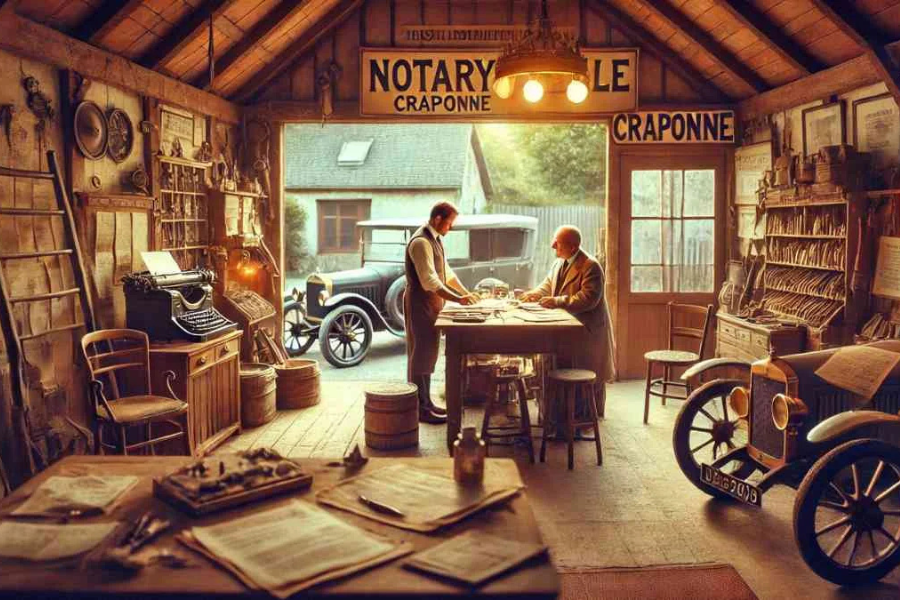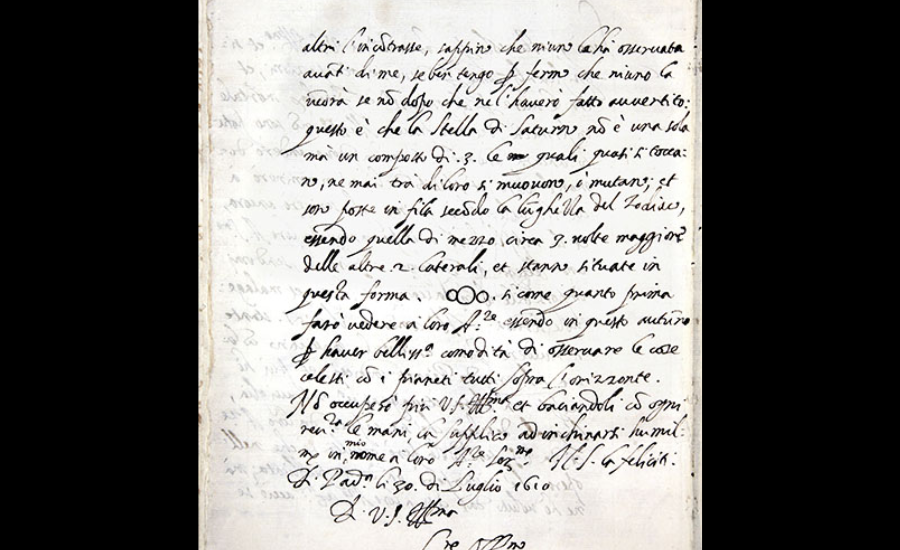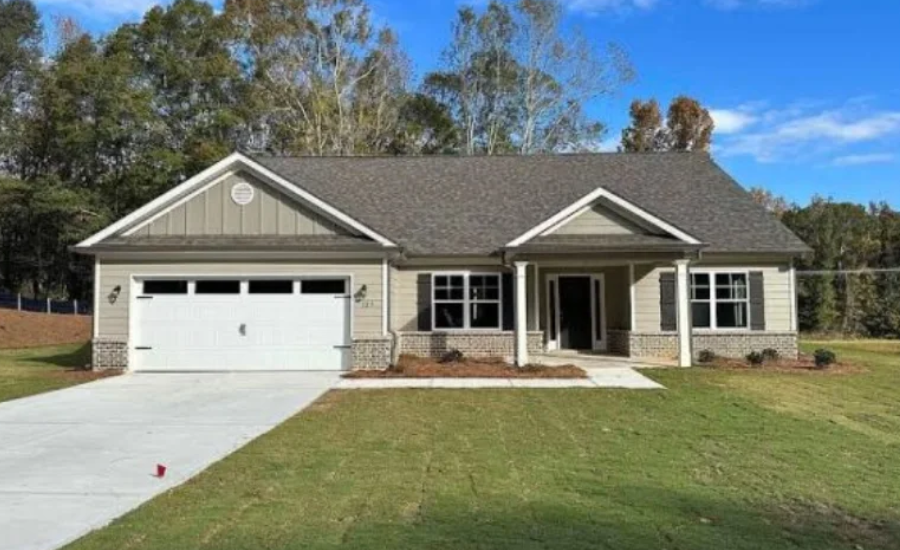Introduction
When it comes to property sales in France, few topics intertwine history, legal complexity, and cultural heritage as seamlessly as “garage craponne notaire” transactions. This term represents a fascinating combination of elements—a garage located in Craponne, a notary handling the legal intricacies, and often, a unique historical context that makes the sale extraordinary.
Let’s delve deeper into the nuances of these transactions, exploring their significance, the role of the notaire, and why such sales resonate with buyers and sellers alike.
The Essence of “Garage Craponne Notaire”
Craponne, a quaint town in the Rhône region of France, is celebrated for its picturesque charm and historical significance. A “garage craponne notaire” sale involves selling a garage in this area, often under the supervision of a notaire, a legal expert responsible for overseeing the transaction. These sales sometimes carry the additional weight of history, transforming them into more than mere property exchanges—they become transactions steeped in heritage and tradition.
Whether the garage served as a family-owned space passed down through generations or holds architectural significance tied to Craponne’s development, such sales are a blend of functionality and cultural preservation. The notaire ensures that every aspect of the sale complies with French legal requirements while respecting the property’s historical value.
The Historical Appeal of Craponne
Located near the bustling city of Lyon, Craponne offers a unique blend of rural charm and historical allure. Buyers are often drawn to this town not just for its scenic beauty but also for its rich heritage. Historical properties, such as old homes, stables, and garages, are particularly sought after. These structures reflect Craponne’s development over centuries and often hold stories that resonate with buyers seeking a deeper connection to the past.
In the context of a “garage craponne notaire” sale, a seemingly ordinary garage can hold significant historical value. For instance, a garage might have been owned by a prominent family, played a role in a local trade, or featured unique architectural elements that showcase the town’s traditional design. Such historical narratives add layers of meaning to the transaction, making it an appealing investment for buyers who appreciate heritage.
Role of the Notaire in “Garage Craponne Notaire” Transactions
A notaire plays an indispensable role in real estate transactions in France. In a “garage craponne notaire” sale, their responsibilities extend beyond routine legalities due to the historical aspects often involved. Notaires are not just facilitators; they act as intermediaries, ensuring that both buyer and seller are protected under French law.
Key Responsibilities of a Notaire:
Historical Verification:For properties with historical significance, the notaire conducts in-depth research into the property’s lineage and ownership history. They ensure that the garage’s historical claims, such as cultural or architectural value, are documented.
Legal Compliance:The notaire ensures the sale adheres to local regulations, including heritage protection laws. For example, if the garage is part of a protected site, the notaire guides the buyer on permissible modifications.
Transparency:Both parties in the transaction are made fully aware of the property’s historical and legal obligations. This transparency minimizes the risk of future disputes.
Documentation:The notaire handles the preparation of all legal documents, including the deed of sale, and ensures that the transfer is registered with French authorities.
By meticulously managing these responsibilities, the notaire safeguards the interests of all involved parties, ensuring a smooth and legally compliant transaction.
Why Buyers Are Drawn to Historical Garages
The allure of a “garage craponne notaire” sale lies in its unique combination of practicality and history. While garages are traditionally viewed as functional spaces, those with historical significance become prized assets for buyers with a keen eye for heritage.
Key Reasons for Interest:
Architectural Charm:Historical garages often feature traditional stonework, vintage doors, or other elements reflective of Craponne’s architectural style. These features make them stand out from modern constructions.
Cultural Connection:Owning a piece of Craponne’s history provides a sense of pride and connection to the town’s heritage. Buyers become custodians of a legacy, adding to the appeal of such purchases.
Versatility:Historical garages can be repurposed into workshops, art studios, or boutique spaces, offering creative possibilities for buyers. However, such transformations must align with local regulations, which is where the notaire’s expertise is crucial.
Investment Potential:Properties with historical significance often appreciate in value over time. A “garage craponne notaire” purchase can be seen as a long-term investment with cultural and financial rewards.
The Complexities of Historical Sales
While the charm of historical properties is undeniable, their sales often come with added complexities. A “garage craponne notaire” transaction might face challenges that require expert navigation by a notaire.
Common Challenges:
Ownership Disputes:Properties passed down through generations may have unclear ownership, leading to disputes that require legal resolution.
Heritage Protection Laws:If the garage is part of a protected heritage site, modifications may be restricted. Buyers must comply with preservation guidelines.
Legal Encumbrances:Historical properties may have unresolved legal issues, such as liens or easements, which the notaire must address.
Restoration Requirements:Restoring a historical garage to its former glory can be a rewarding but challenging process. Buyers must navigate local regulations to ensure compliance.
By conducting thorough research and ensuring transparency, the notaire minimizes these risks, allowing both buyer and seller to proceed confidently.
Craponne’s Influence on Property Sales
Craponne’s unique charm significantly impacts property sales. The town’s tranquil environment, coupled with its proximity to Lyon, makes it an attractive location for buyers. Historical properties in Craponne, including garages, add an extra layer of appeal due to their connection to the town’s heritage.
A garage in Craponne might not immediately stand out, but its historical narrative can make it a coveted asset. For example, a garage once used by a notable family or linked to a significant event in Craponne’s history becomes more than just a utility space—it becomes a piece of living history. Buyers often seek these properties for their stories, investing in both functionality and heritage.
Preserving History Through Legal Expertise
The role of the notaire in a “garage craponne notaire” sale goes beyond ensuring legal compliance. By documenting the historical significance of the property, the notaire plays a vital role in preserving Craponne’s heritage.
Buyers and sellers alike benefit from this expertise. Sellers can confidently transfer their property, knowing its history is protected, while buyers gain the assurance that they are acquiring a legitimate and culturally valuable asset.
Transforming Historical Garages
One of the most exciting aspects of acquiring a historical garage is the potential for transformation. Many buyers view these garages as blank canvases for creative projects. From workshops to small boutiques, the possibilities are endless.
However, such transformations require careful planning. The notaire ensures that any modifications align with local regulations, particularly when the garage holds cultural or architectural significance. This guidance allows buyers to balance preservation with innovation, ensuring that Craponne’s history remains intact while embracing modern functionality.
Conclusion
A “garage craponne notaire” sale represents more than just a property transaction—it’s a journey into the heart of Craponne’s history and heritage. From the meticulous legal work of the notaire to the charm of Craponne’s historical properties, these sales are a testament to the enduring value of preserving the past.
Whether you’re a buyer seeking a unique investment or a seller passing down a piece of history, the involvement of a notaire ensures a seamless and legally compliant process. By safeguarding the historical significance of properties, notaires play a crucial role in keeping Craponne’s legacy alive for generations to come.
The allure of a “garage craponne notaire” transaction lies not only in its financial potential but also in its cultural and emotional resonance. It’s a reminder that every property has a story—and with the right legal expertise, these stories can continue to enrich Craponne’s vibrant heritage.
FAQs About “Garage Craponne Notaire”
1. What does “garage craponne notaire” mean?
“Garage craponne notaire” refers to a property transaction involving a garage in the town of Craponne, France, where a notaire (notary) oversees the legal aspects of the sale. Such transactions may involve historical significance, adding complexity and cultural value.
2. Why is a notaire required for property transactions in France?
In France, a notaire is a legal professional responsible for ensuring that property sales comply with French law. Their role includes verifying ownership, resolving disputes, managing documentation, and ensuring transparency in the transaction.
3. What makes a “garage craponne notaire” sale historical?
A sale becomes historical if the garage holds significance due to its age, unique architectural features, or connection to Craponne’s heritage. Examples include properties tied to notable families or events, or those protected under local preservation laws.
5. Can I modify a historical garage after purchasing it?
Yes, but modifications must comply with local regulations, especially if the garage is part of a protected heritage site. The notaire ensures you are aware of any restrictions and assists with the legal requirements for renovations.
6. Why are historical garages in Craponne appealing to buyers?
Buyers are drawn to the architectural charm, cultural connection, and investment potential of historical garages. Many see these properties as unique opportunities to own a piece of Craponne’s history.
7. How does a notaire ensure a smooth transaction?
A notaire conducts thorough research into the property’s history, resolves any legal encumbrances, prepares documentation, and ensures transparency between buyer and seller. Their expertise minimizes risks and legal complications.
8. Are historical garages more expensive than regular garages?
The price of historical garages depends on factors like their age, condition, and historical significance. While some may be priced higher due to their heritage, others may offer value as restoration projects with investment potential.
9. Can a historical garage be repurposed?
Yes, historical garages can be transformed into workshops, art studios, or even small businesses, provided such changes adhere to local regulations. A notaire can guide you through the legal aspects of repurposing the space.
10. What role does Craponne’s heritage play in property sales?
Craponne’s rich history and scenic charm make its historical properties, including garages, highly desirable. Buyers value the connection to the town’s past and the opportunity to preserve its legacy.Stay connected for the latest news and updates on Insight Rays



